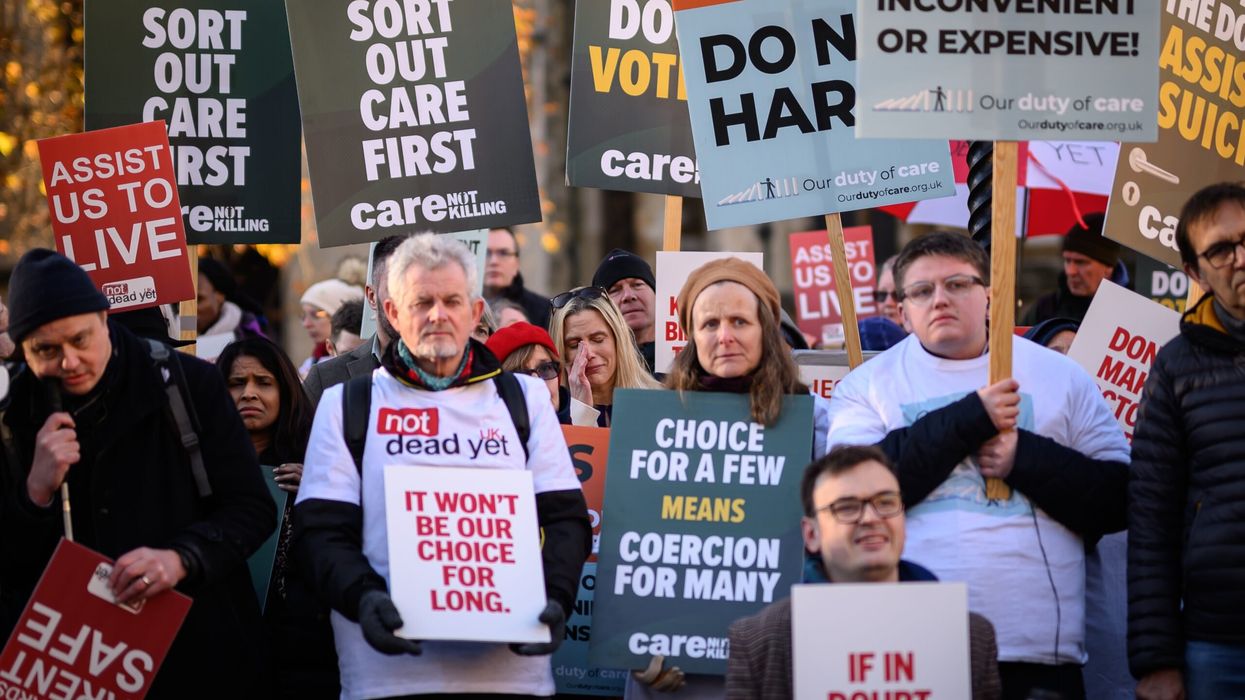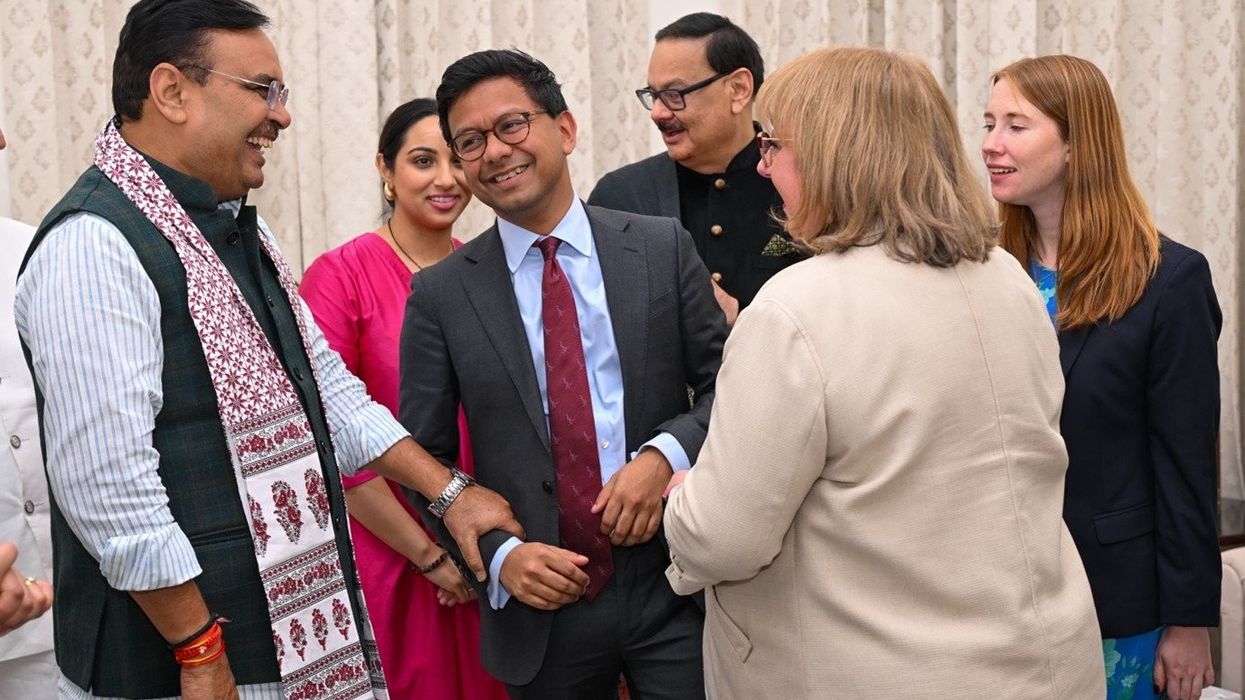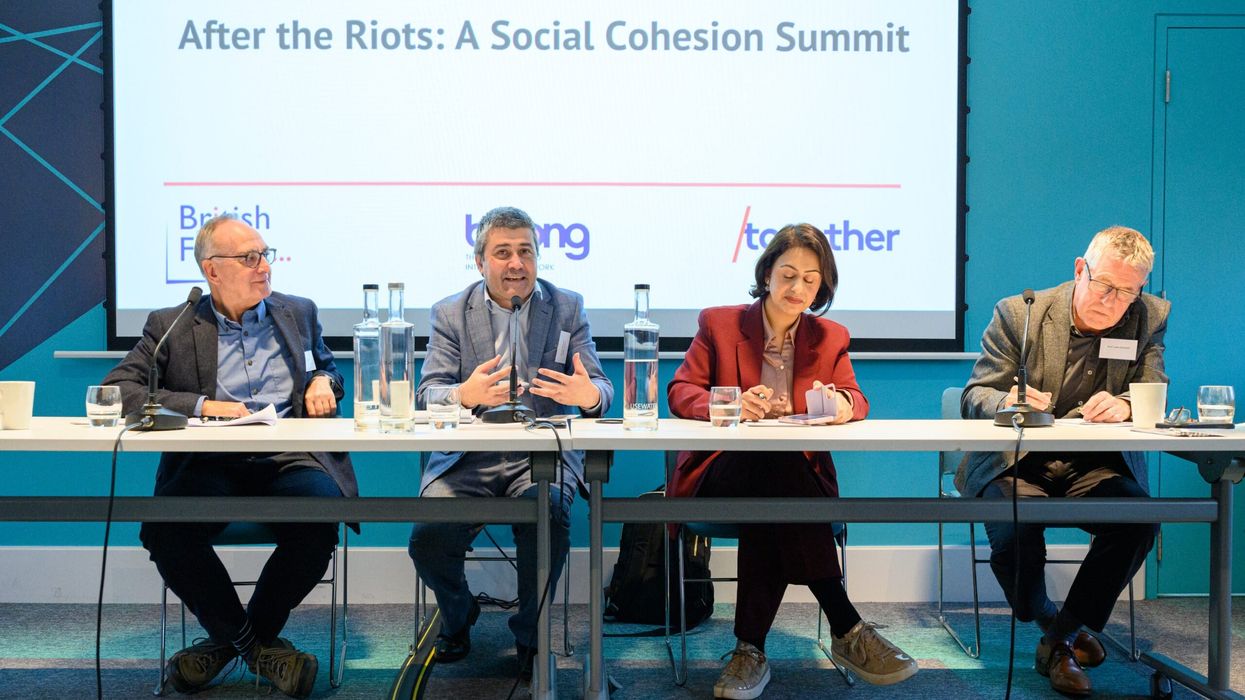By Lord Ahmad
EARLIER this month, prime minister Boris Johnson and prime minister Narendra Modi made a historic commitment to strengthen collaboration between the UK and India over the next decade, bringing our countries, economies and people closer together.
This quantum leap will be transformational in boosting cooperation in areas that matter to the UK and India, including trade and investment.
It also means we will strengthen our collaboration to tackle many of the global challenges we face today, including the Covid-19 pandemic, climate change, and countering extremist and security threats as well as malign cyber activity.
I had the opportunity to visit India in March this year and see first-hand our invaluable partnership in action.
Both the UK and India are proud signatories to the Paris Agreement on tackling climate change, and the UK is keen to work with India ahead of the UN climate summit, COP26, in November to lead the global shift to a low-carbon economy and expand access to sustainable energy.
While in India I met leaders from Tamil Nadu to talk about how the UK could share expertise with India on offshore wind energy. India has quadrupled wind and solar capacity in the past decade and is committed to net zero emissions in the Indian Railways by 2030 – and with one of the biggest railway networks in the world, that’s no small undertaking.
With the UK’s global leadership on offshore wind and India’s drive on solar energy, deepening UK-India collaboration will be crucial to a successful outcome at COP26.
More recently, the strong links between the two countries were evident during the current second Covid-19 spike across India. In the last few weeks, British people have stepped up in their thousands to support India during this most testing time.
We talk of the “living bridge” between India and the UK – the people-to-people connections. What does that really mean? It means that we avail new opportunities, but crucially in times of crisis, we stand shoulder to shoulder with each other.
The Covid-19 pandemic and the response to the situation in India demonstrates the dynamism of these links. Whether it’s between the two governments, businesses or our communities, incredible contributions have been made, from financial donations to vital medical equipment – the India-UK living bridge has shown its value and strength.
These connections will be enhanced and bolstered over the next decade and some huge transformational steps are already underway.
India has elevated its relationship with the UK to a ‘Comprehensive Strategic Partnership’ – the first European country to be granted that status. Both prime ministers, in announcing a further £1 billion in trade and investment deals, have also committed to a “2030 roadmap” between our two countries, which will focus joint working across all aspects of our relationship, including trade, defence, climate, health and migration.
Furthermore, the roadmap will expand our health partnership and make sure we are more resilient to any future pandemics, set ambitious goals on tackling climate change and preserving nature, and deepen the economic relationship between the UK and India through an Enhanced Trade Partnership.
Trade secretary Liz Truss begins preparations for a trade deal with India on Tuesday (25), launching a 14-week consultation to seek the views of the public and business. A deal with the world’s largest democracy and a market of 1.4 billion consumers would create jobs and drive economic recovery for both nations.
We will also see increased cooperation between British and Indian universities on crucial research in areas including health, emerging technologies and climate science, and we will work together to tackle threats to our shared security. The UK’s Carrier Strike Group which departed our shores last weekend will visit India this year to boost this work with our naval and air forces. They will be undertaking joint training exercises to enable future cooperation on operations in the Western Indian Ocean.
This is not just a step change in our relationship. I have advocated for a transformation to our approach and relationship based on the unique foundations between the two nations, and I believe we are already seeing real progress from this action plan that will boost prosperity for all of us.
As the UK foreign minister for South Asia at the Foreign, Commonwealth and Development Office, I recognise, indeed, celebrate that the 1.5 million-strong Indian diaspora population in the UK is a huge source of expertise and insight that will help ensure the success of this roadmap.
In order to make full use of this expertise, I am chairing a newly established UK-India Advisory Council, which includes among its members representatives of the British Indian diaspora community, and which will offer experience from sectors including business, science, national security, education, international relations, international development, parliament, and civil society.
The council, whose membership includes the president of the Confederation of British Industry, Lord Karan Bilimoria; Dr Radhika Khosla, research director at the Oxford India Centre for Sustainable Development; Professor Parveen Kumar, professor of medicine and education at Queen Mary University of London; and leading industrialist GP Hinduja among others, is providing ideas, advice and innovative solutions on boosting ties between our countries.
We have already met twice, most recently to discuss mobilising a cross-UK response to help India through the current Covid-19 crisis. We will be meeting regularly throughout the year to discuss the delivery of the UK-India roadmap.
This is a hugely exciting time for the UK-India relationship. As the UK, beyond Brexit, builds and strengthens alliances across the world, this isn’t just about saying how important India is to our country.
This is about practical outcomes focusing on the real opportunities that exist for both countries and our people, benefiting from the skills and expertise of our incredible and unique living bridge.
Lord Tariq Ahmad is minister for South Asia and the Commonwealth at the Foreign, Commonwealth & Development Office (FCDO).




















New India-UK council ‘will offer ideas on boosting ties’